Building the mechanism for sturdy FDI efficiency
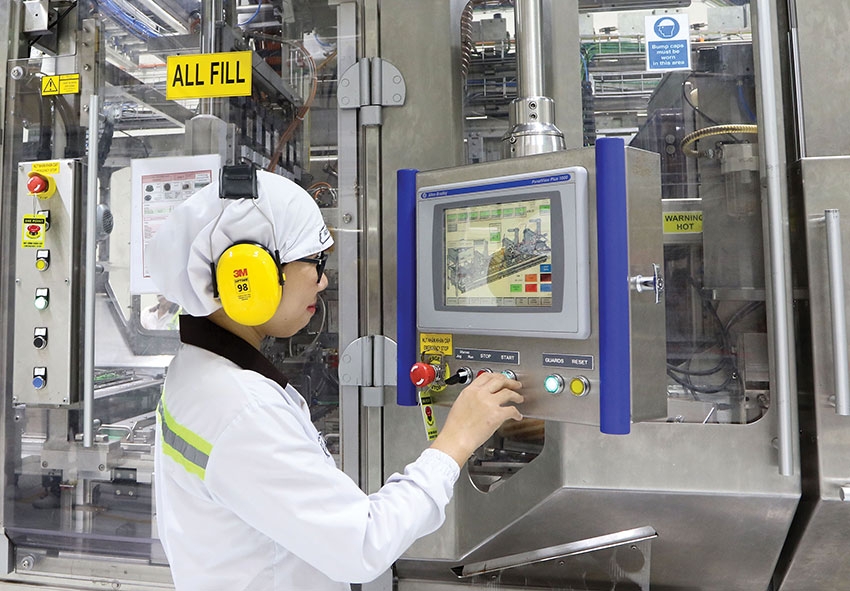 |
| Resolution 50 leads a new approach in ensuring key projects are selected based on relevant and clear criteria |
Looking back at foreign direct investment (FDI) over the last 30 years, the results have been very positive, and a group such as Samsung is a perfect example. From a small factory of consumer electronics in Samsung Vina, it has taken bold steps to set up a mobile phone assembly line in the northern province of Bac Ninh. There came a point when that small factory in Bac Ninh out-performed a bigger Samsung assembly line in China in time delivery and productivity.
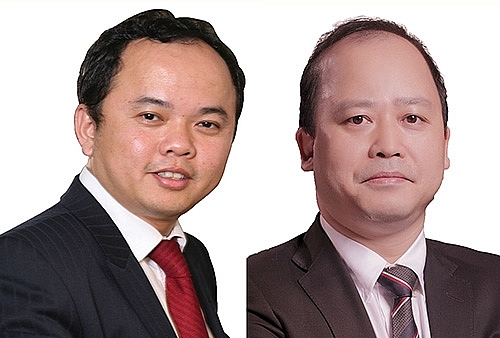 |
| Le Net from LNT & Partners and Nguyen Hung Quang from NHQuang & Associates |
The South Korean investor soon realised that Vietnamese people are hardworking and very smart. The investor decided to expand investment in their plant in Bac Ninh to over $2 billion, and the rest was history. Another Samsung plant appeared in the northern province of Thai Nguyen for over $10 billion. Later, a Samsung Display plant worth over $1 billion and a further plant in Ho Chi Minh City for over $2.5 billion were established.
Samsung investment can ultimately benefit and lend a hand to the creation of new towns in Thai Nguyen and Bac Ninh, but also attract many satellite investors that produce original equipment and machinery for Samsung. Step by step, more Vietnamese companies have joined the Samsung value chain. The group accounts for 20 per cent GDP of South Korea, and also for 20 per cent of Vietnam’s total exports, employing hundreds of thousands of workers and engineers. The group now has more than 10 per cent of global assets in Vietnam, and created a research and development (R&D) centre in Hanoi. Samsung has chosen Vietnam not because of the tax incentives, but thanks to the Vietnamese people.
Considering the work of Samsung under the spirit of Vietnam’s recently-issued Resolution No.50-NQ-TW on orientations to perfect institutions and policies to enhance the quality and efficiency of foreign investment co-operation through 2030, investors have done what the Party asked for: building R&D centres and bringing more technologies.
Some argue that investors do not pay corporate income tax due to tax incentives, but we have to understand that if they do not come to Vietnam in the first place, we will lose not only income tax, but all taxes, and all chances for development. For the investors to build a refinery at around $9 billion, the government has to provide a government guarantee. Comparing a refinery project with Samsung projects, it is not difficult to see which is in line with Resolution 50. However, the government’s bodies that review Samsung projects often do not share experiences with the authorities that reviewed the investment proposals from other ventures. All investment proposals are subject to the same law, the same holistic but formative review of feasibility study, but then more or less are free to carry out their plans after an investment certificate was granted.
The difference between Samsung and other projects is that for Samsung, authorities are from dynamic provinces such as Ho Chi Minh City, Bac Ninh, and Thai Nguyen. There should be a move to change from “form over substance” and formative investment proposal review, into a “substance over form” and substantive investment post-licensing supervision. That is where Resolution 50 is necessary.
In addition, it is unfair to attribute all efficiencies to the investors, as is listed in the resolution. In the past, Vietnamese authorities lacked the expertise to draw lessons from both good and bad experiences.
However, with the younger generations’ good command of English, western education, and patriotic hearts, they are more sophisticated and can negotiate with foreign partners. That said, we should not interpret Resolution 50 as a protective approach towards investors. Vietnam is like the plan is on the runway and about to take off. Pushing the brake is not a good idea. The idea is to guide the plan to catch the wind and reach new heights.
New orientations
Since the sixth Party Congress in 1986, the congress has targeted to build the multi-sector commodity economy and open the door for international investment co-operation. Many resolutions of the Party have given directions to the attraction and use of FDI, which affirm that the foreign-invested sector is part of the economy, and has equal treatment with other economic sectors. Many estimations and analyses also affirmed that FDI is a key driving force for Vietnam’s economic development and international integration.
Over the past 30 years, there have been significant and regular changes in FDI trends globally. Some countries develop their foreign investment attraction policy to restructure the economy, while some others have this to increase international market access, or to raise labour productivity, attract new technology, and others. Meanwhile, Vietnam’s legal system and policies remain inactive and instable, inconsistent, asynchronous, and lack a strategic vision.
Weakness of domestic companies, shortcomings of the supporting industry, and lack of trained workforce meeting the requirements of multinational corporations have been unsolved problems for years, and recently made impacts on FDI performance and attraction. In the long term, the policies and regulations focused much on incentives for foreign-invested projects, but less attention paid to creating favourable conditions for indirect investment channels such as mergers and acquisitions, as well as securities.
The number of foreign-invested projects with small-scale low technology and labour incentives remain huge. Links between the FDI sector and the domestic private remain loose, resulting in low spillover effects on productivity and technology transfer. Transfer pricing and illegal investment remains popular.
The recently-issued Resolution 50 giving directions towards increasing the quality and efficiency of foreign investment attraction by 2030 is the first time that the Party Central Committee has had a specific resolution on foreign investment attraction.
The general objectives of the resolution is to complete the governance and policies on foreign investment attraction in a high competitive manner amid global integration; to meet the requirements of renewal of the growth model, economic restructuring, environmental protection, and settlement of social issues; and to deal with the shortcomings in building policies on such attraction. The issuance of the resolution comes at the time when sectors reviewed the 30-year performance of FDI attraction, and changes in the global trends in investment movements, economic alliances, and investment protection were more obvious.
Looking at the detail
Resolution 50 covers a number of highlights. First, the scope of policy in the resolution covers all foreign-invested activities, including both direct and indirect investment, not only foreign direct investment as in previous policies. In the past, policies and regulations on incentives and management of indirect investment remained scattered and unsystematic.
The resolution also defines the application of a negative approach instead of positive approach. It is now more aligned with Vietnam’s international commitments.
Another factor is the direct building of criteria on investment to select and give priorities to investment in line with planning and development strategies of specific sectors, fields, and areas; and building of mechanisms to assess security in foreign-invested projects and activities which will possibly have an impact on national security. This approach requires the government to have a plan to attract foreign investment for development of the selected sectors, fields, and localities in the long-term, based on clear criteria and incentives, and based on efficiency of investment instead of being based on on-paper proposals.
The resolution directs the building of privileged incentive policies for key national projects and high-tech ones, and the attraction of strategic investors and multinational corporations to establish R&D centres and innovation centres in Vietnam. What is more, the resolution also asks to study and pilot new business and investment models to tap into the opportunities from Industry 4.0.
In order to increase the efficiency of links between foreign investment and domestic ones, and create a spillover effect of foreign investment on domestic equivalents, the resolution directs the sectors for investment attraction priority. These include development of link industry clusters, increase of domestic added value, and improvement of competitiveness of products and national position in the global value chain.
To avoid Vietnam from being a technology landfill and over-exploitation of energy and natural resources, Resolution 50 also asks to increase the standards and technical regulations on products, environmental protection, natural resources, and energy-saving in line with regional and international standards.
As a result, the regulations on standards, investment incentives, and grant of licenses to overseas investments will have to change in the future.
Finally, in order to prevent disputes between the state and investors, the resolution requires building of a mechanism on prevention and settlement of complaints, and lawsuits from investors; and increase of quality and efficiency of dispute settlement mechanisms.
| Harry Loh - CEO, UOB Vietnam
Vietnam nowadays is very different from when I was here on assignment in the late 1990s, at a time when UOB was one of the early banks to be set up here. The country’s economy has developed and improved by leaps and bounds as what could be observed from the numerous high-rise buildings, the increases number of cars, and the significant influx of foreign investors. I recall that there was no Internet during the 1990s, but now almost every Vietnamese can be connected to the world through their mobiles. I think Vietnam is changing very fast and people enjoy the benefits from foreign direct investment and stability. We are very positive and upbeat about Vietnam’s economic future. UOB will continue to play our part to facilitate cross-border trade between Vietnam and the region, and provide connectivity and facilitating investment flows into the country as well as support Vietnamese companies to expand overseas. David Pan - General manager TCL Smart Device Vietnam
As a country in Southeast Asia which is currently one of the fastest-growing regions in the world, Vietnam possesses advantages in location, technology, and many other fields. Over the years, Vietnam’s economy has maintained fast growth and GDP, and economic openness has also increased. Aiming to be a modern industrial country, Vietnam has paid attention to the building of a sustainable and high-quality economic model. With clear development directions, Vietnam is an interesting destination for international investors, including many Chinese investors and businesses. Besides this, the Vietnamese government has continuously issued preferential policies which have been a magnet for such businesses to invest and develop. Operating in Vietnam for over 20 years, TCL has received great support from the government. However, Vietnam still needs to improve in terms of traffic, and importing tax should be lower. The import tax of some materials should be 5 per cent lower, in my opinion. With the hope to contribute to development of Vietnam’s economy, we are building a 73,000 square metre factory in the southern province of Binh Duong to expand our scale. We will invest in technology to produce high-quality products and, with this factory, we will promote products exported to Europe. Nguyen Ba Luan - Country president Cargill Vietnam
After 24 years in Vietnam, Cargill is today among the established and key foreign-invested players in the local agri-business industry. What keeps us in a strong position for growth and success in Vietnam is our customer focus strategy: our tremendous efforts to enhance animal nutrition and farm management capabilities for farmers to create a better living for them; our people development strategies with an increasing focus on building local leaders; and our commitment to enriching local communities. Vietnam is an exciting market and will continue to be a key market for Cargill as the country is in the process of reinvigorating its growth potential, not only in terms of quantity but most importantly in terms of quality and sustainability of growth. This is essential for Vietnam to realise its aspiration of becoming a successful upper middle-income country. Because of this, Cargill will continue to invest in Vietnam and our people, in helping farmers to be more efficient, more productive, and to grow their business. This in turn allows us to grow together with them as a trusted partner who can bring to Vietnam our global expertise, know-how, and supply chain capabilities. Alain Cany - Country chairman Jardine Matheson Vietnam
Vietnam has managed its economy well in the last three decades and the driving force of its economic success has been the export-oriented manufacturing FDI. Located within the most dynamic geographical part of the continent, coupled with political and social stability, the Vietnamese government has built a close relationship with the foreign investor community. As a long-term investor in Vietnam, we have seen how the country has transformed itself, from a closed economy to one of the most dynamic emerging countries in Southeast Asia. Jardine group have made investments in many sectors in Vietnam and we will continue to look for new opportunities to materialise our commitments to the development of Vietnam. We believe foreign investors will continue to play a central role for the next phase of development, as they can help bring capital and expertise that are needed to build new infrastructure, which are key to maintain the country’s competitive edge and to ensure that Vietnam is among the best destinations for investment. We have seen labour-intensive manufacturing dominating foreign-invested enterprises during the past decades. Now we think Vietnam must attract environmentally-sustainable industries and high-quality technologies, because we believe the country possesses a high-quality workforce that could integrate well into global economy. Reforms need to be continued, and equitisation of state-owned enterprises must be accelerated to make Vietnam a friendly destination for foreign investors. Guido Romagnoli - Director and founder Inxtead Consulting
Inxtead Consulting has been present in the central province of Danang since 2017 with the mission to coach Vietnamese executives, entrepreneurs, and university students so as to improve the soft skills necessary for the success of their companies and future startup businesses. We also support international companies to effectively enter the Vietnamese market and partner with local organisations. I was personally impressed with Vietnam’s progress in critical areas like infrastructure development for the promotion of mobility, logistics, connectivity, and education, including investment in incubators for small businesses that also helped the startup of our company. These past achievements in infrastructure and in people development will be the base for even brighter future successes for Vietnam in the areas of tourism, smart cities, e-government, Industry 4.0, environmental care, and the circular economy. Kenneth Matkinson - Founder and senior board adviser Grant Thornton Vietnam
When you look back over the last 30 years, there has been amazing change in the quality and quantity of FDI into Vietnam and with the regulatory environment. From humble beginnings when early investors were a mixture of large multinational companies, we can fast-forward to today and Vietnam is achieving relatively high levels of FDI that most developing countries would be envious of. It is preparing for the next generation for FDI with higher technology and higher value addition, in line with Industry 4.0. The pace of economic development has certainly surpassed my expectations from 30 years ago. Especially in the last six to eight years, the economic fundamentals for Vietnam remain strong and compelling, aside from any major external shocks caused by the trade war between the US and China. The quality of FDI on the whole has improved significantly in recent years both in terms of commitments and more importantly in disbursed capital. To attract high-qualified FDI, the government should continue to focus on reducing red tape and bureaucracy, and cutting the time both domestic and foreign investors have to spend on compliance. It must also drive to increase transparency and reduce the hidden costs of business. Ywert Visser - International sales manager Paul Mueller Company
The development of Vietnam in the last decade has been incredible. When I came to Vietnam, travelling from Hanoi to Haiphong would take half a day. Now you can do it in under 1.5 hours. There is an amazing choice of shopping malls and the 4G on my mobile phone is faster and cheaper than in my home country. I am very positive about the future development of Vietnam, and I believe that it is set up for long-term growth. Vietnam has signed many advanced trade agreements with the worlds’ biggest economies, and it also is working on development of infrastructure, such as new ports, industrial zones, roads, and airports. This will help Vietnam’s long-term integration into the global supply chain. I am especially happy with the decision of the Vietnamese government to focus on sustainable development and attracting sustainable FDI. Companies that use clean, efficient, modern production technologies and provide a safe work environment are welcome, while those that want to build new factories with outdated or polluting technologies are blocked. In August the Party Central Committee issued Resolution 50-NQ/TW on orientations to perfect mechanisms and policies, and raise the quality and efficiency of foreign investment by 2030. It is an important step in creating a framework to evaluate the quality of new investment projects. Matthijs van - den Broek Board member Dutch Business Association Vietnam
Vietnam’s economy is thriving. As manufacturers already began shifting operations away from China to cheaper locations such as Vietnam for a number of years, the trade conflict between the world’s superpowers is merely accelerating this shift. Ideally located, with a stable political climate and a young hardworking and entrepreneurial population, Vietnam is poised to be the new powerhouse in Southeast Asia. The recently concluded EU-Vietnam Free Trade Agreement, dubbed the most ambitious the EU has ever concluded with a developing country, will remove 99 per cent of trade tariffs between the EU and Vietnam and will see their current trade value of around $56 billion increase substantially over the years. A growing middle-class, combined with a gradually improving playing field for foreign companies, makes Vietnam an attractive destination not only for manufacturers, but also for overseas consumer products with plans to enter the market. Vietnam is on the right track economically, for sure, but also socially; poverty is being reduced dramatically; development beyond Hanoi, Haiphong, Ho Chi Minh City, and Danang features prominently on investors’ agendas; and renewable energy is now considered a serious option by the government. |
What the stars mean:
★ Poor ★ ★ Promising ★★★ Good ★★★★ Very good ★★★★★ Exceptional
Related Contents
Latest News
More News
- Internal strengths attest to commitment to progress (February 19, 2026 | 20:13)
- Vietnam, New Zealand seek level-up in ties (February 19, 2026 | 18:06)
- Untapped potential in relations with Indonesia (February 19, 2026 | 17:56)
- German strengths match Vietnamese aspirations (February 19, 2026 | 17:40)
- Kim Long Motor and AOJ Suzhou enter strategic partnership (February 16, 2026 | 13:27)
- Haiphong welcomes long-term Euro investment (February 16, 2026 | 11:31)
- VIFC in Ho Chi Minh City officially launches (February 12, 2026 | 09:00)
- Norfund invests $4 million in Vietnam plastics recycling (February 11, 2026 | 11:51)
- Marico buys 75 per cent of Vietnam skincare startup Skinetiq (February 10, 2026 | 14:44)
- SCIC general director meets with Oman Investment Authority (February 10, 2026 | 14:14)

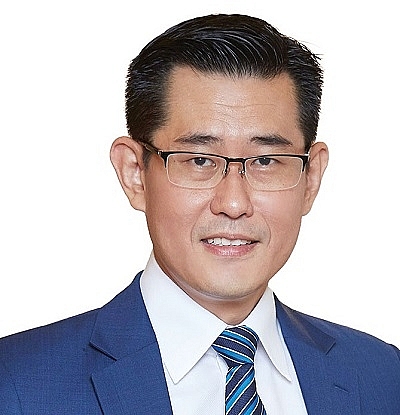
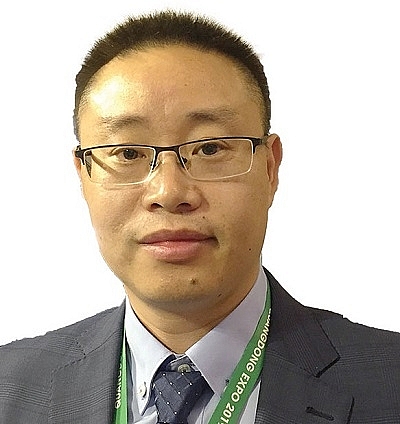
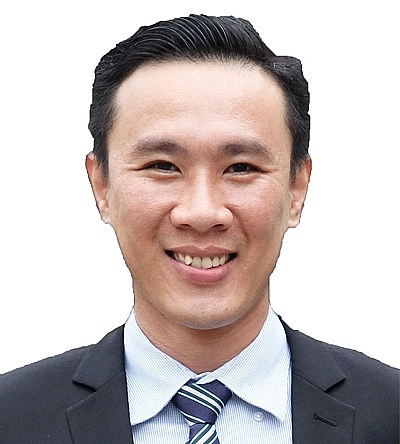

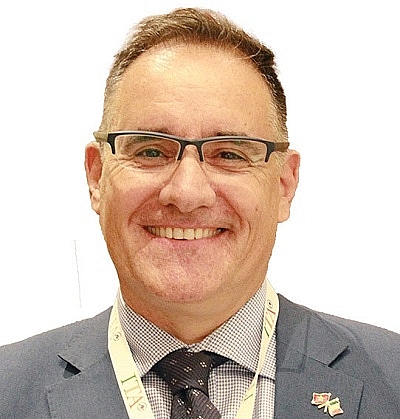
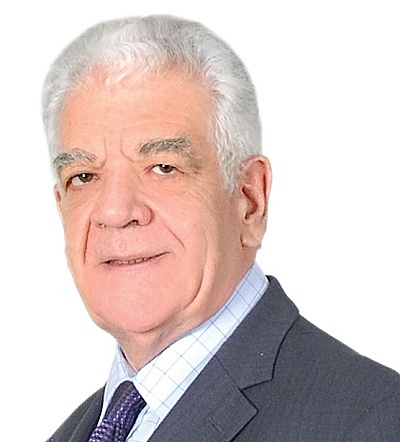
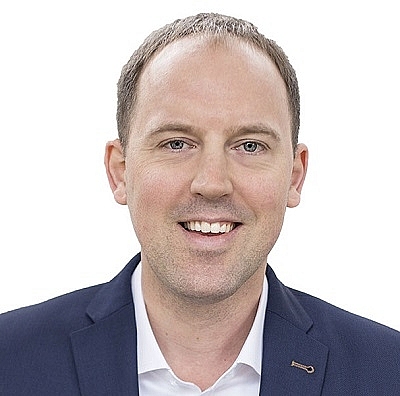

 Tag:
Tag:


















 Mobile Version
Mobile Version